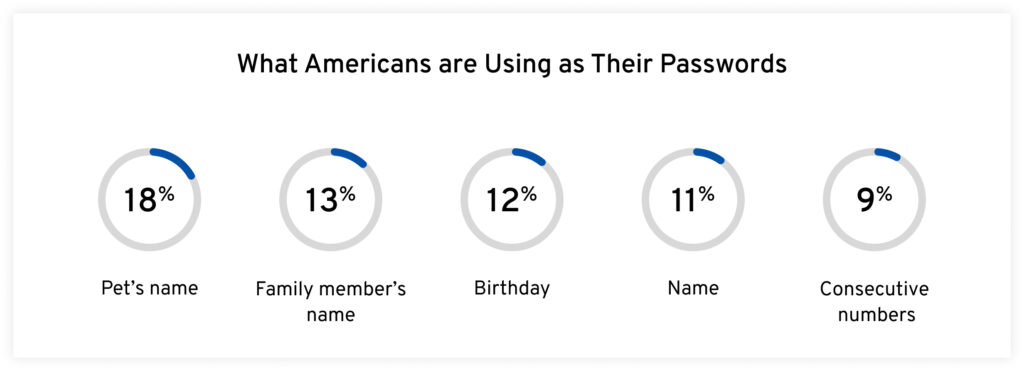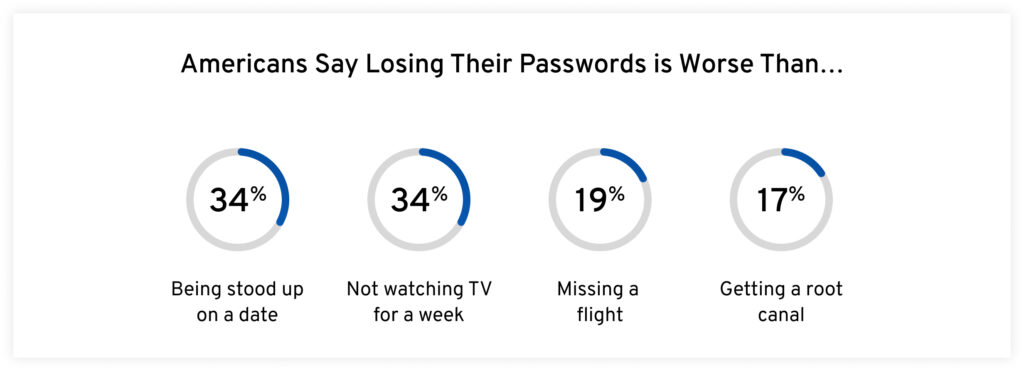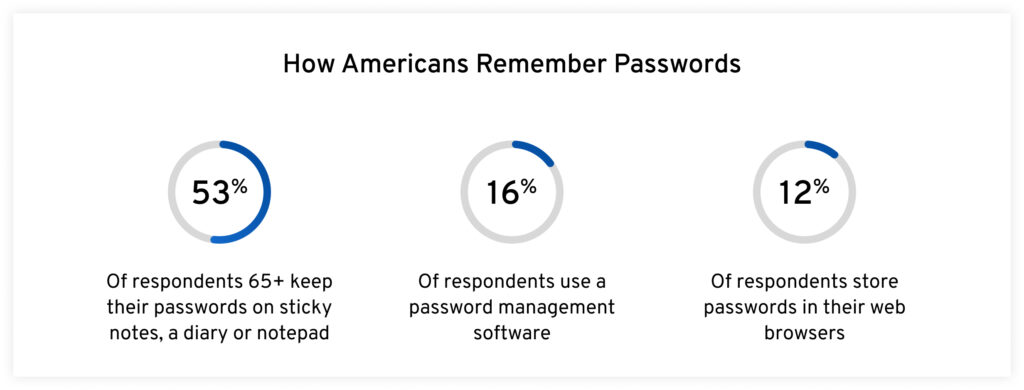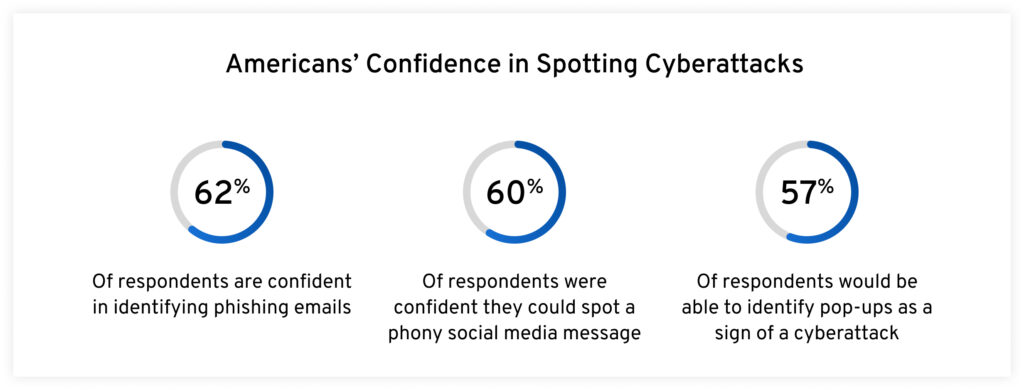No, it’s not safe to password-protect PDF files because your files are not guaranteed to be protected from cybercriminals intercepting and gaining unauthorized access to your
Keeper recently released their 2022 US Password Practices Report – diving deep into the password habits of 2,000 Americans. Findings show that Americans are continuing to disregard basic password hygiene and giving in to scams, which are leaving them vulnerable to breaches and loss of money. Read on to learn more about Americans’ password habits in 2022.
Americans Are Using Easy-to-Guess Passwords
It’s no surprise that Americans’ password negligence stems from a majority of them not using password managers. They’re relying on themselves to create and remember their own passwords for each of their accounts, so they’re using easy-to-remember passwords – which are also easy to guess.

What we are seeing is a relaxed attitude toward password hygiene among younger generations. 24% of respondents aged 18-24 are using their birthdays when creating passwords, whereas only 7% of respondents aged 55-64 said the same.
Americans Are Duplicating Their Passwords
Not only are people utilizing easy-to-guess passwords, but they’re also using the same passwords for multiple sites and apps. Keeper’s report finds that 56% of respondents use the same password for multiple accounts. On average, respondents are using the same password for four different sites and apps.
Findings demonstrate that younger generations tend to reuse the same passwords for more accounts than older generations. Respondents aged 25-34 use the same password for five different sites and apps, whereas respondents aged 65+ use the same password for three different sites and apps.
Americans Are Being Hacked Due to Poor Password Hygiene
As password hygiene continues to be overlooked by respondents in the US, findings also suggest that Americans are being hacked and it’s causing them to lose money in some cases. The report finds that 55% of respondents have been victims of a cyber attack at least once and 18% of those respondents said that money was stolen. On average, US respondents lost $378.
When it comes to social media, 32% of respondents said that their social media logins have been stolen. What’s interesting to see is that a higher percentage of those respondents were between the ages of 18-24.
Despite the prevalence of being hacked, respondents don’t do much about it to prevent themselves from being hacked again. In fact, 68% of respondents are concerned about the aftermaths of being hacked and only 33% are very concerned. Although 15% of those surveyed said they know their passwords are on the dark web, they haven’t taken the steps to do anything about it, which leads us to question how much Americans value their passwords.
Do Americans Value Their Passwords?

How Americans are Remembering Their Passwords
Without a password manager, creating strong passwords that are easy to remember can be next to impossible. In fact, respondents are forgetting their passwords 51 times per year, on average.
Forgetting passwords means having to change your passwords each time you forget them. On average, Americans are changing their passwords 10 times per year, with 11% of respondents having to change their passwords once a month. Constantly forgetting and changing passwords can place all your accounts at risk of becoming compromised and indicates the prevalence of security vulnerabilities. Changing passwords frequently is a security risk because constantly creating passwords on your own means creating bad ones, reusing passwords and also writing them down in order to remember them. Unless you believe your passwords have been compromised, your passwords shouldn’t be changing often.
So, how exactly are respondents choosing to remember and store their passwords?

Respondents Are Confident About Spotting Cyber Attacks
A part of being cyber-aware is knowing how to spot cyber attacks. Here’s what we found in regard to how US respondents feel about being able to spot them.

Are Americans Implementing MFA?
Multi-Factor Authentication (MFA) adds more security to the accounts you implement it on, but despite this fact, only one in six respondents have used this second step to secure their accounts and report that they find it difficult.
Difficulty in using multi-factor authentication has prevented 20% of respondents from using it at all.
How to Create Stronger Password Security
Keeper’s findings demonstrate a troubling disconnect between the importance people place on their passwords and the security measures they take to safeguard them. Despite placing a high value on their passwords, Americans are still choosing to inadequately protect them and utilizing easy-to-guess passwords.
Although it’s easy to be careless with our password hygiene, cybercrime is a constant concern. It’s crucial to spread knowledge about the basic, preventative methods that might lessen the likelihood of future cyber attacks. Safe and secure passwords are simple to create with a quality password management solution and by implementing multi-factor authentication in each of your accounts.
A password manager aids you in creating and remembering strong, unique passwords for all your accounts, so you no longer have to stress about coming up with them yourself. Plus, the only password you’ll have to remember is your master password, so there’s no need to write all your passwords down on paper.
 Password
Password 
